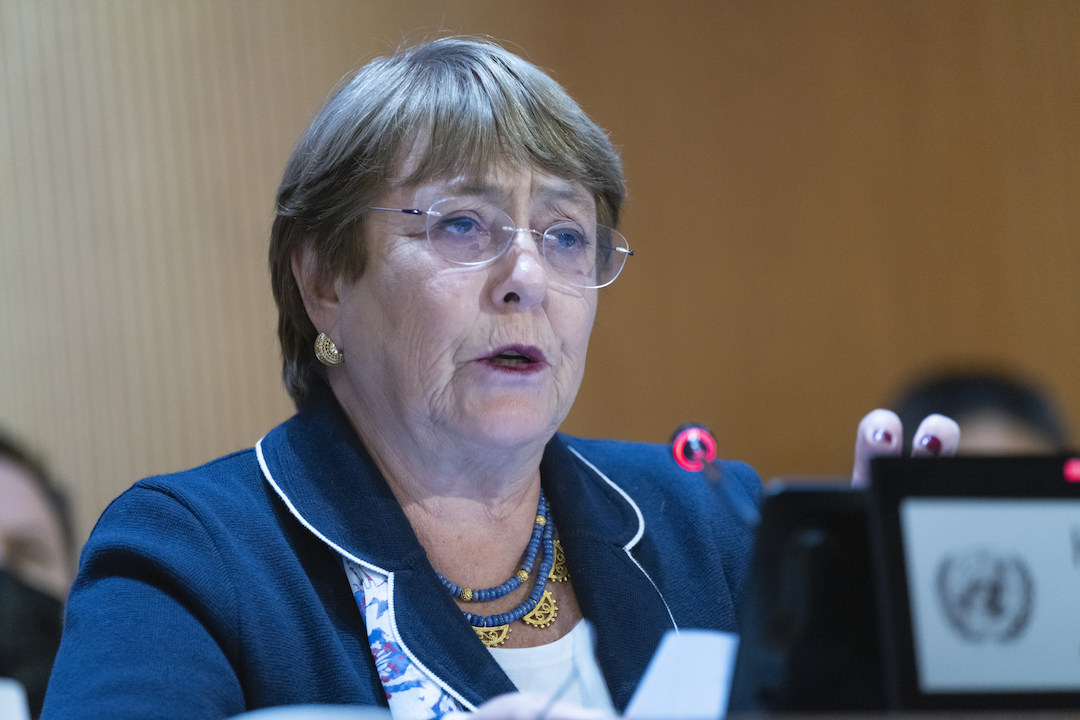Top UN human rights official to visit Bangladesh
Michelle Bachelet, the United Nations High Commissioner for Human Rights, will raise issues of extrajudicial killings, disappearances and freedom of expression.

Michelle Bachelet, the United Nations High Commissioner for Human Rights is visiting Bangladesh for four days in August 2022 to discuss the human rights situation in the country.
It is the first time that a UN High Commissioner for Human Rights has ever visited Bangladesh since the post was established 29 years ago in 1993.
A UN official, with access to preliminary details of the visit, told Netra News that during the official mission between August 14th to 17th 2022, Bachelet will hold meetings with the government and civil society members on enforced disappearances, extrajudicial killings and freedom of expression.
She will also travel to Cox’s Bazaar to visit the Rohingya camps.
This is the first time the news of the planned trip is being reported.
The issue of free and fair elections may be touched upon during the visit, the official said, but it is unlikely to be a focus of her mission.
While Bachelet, formerly the president of Chile, will request a visit to the Chittagong Hill Tracts, as her office remains concerned about the situation there, the UN does not expect the Bangladesh government to permit this.
Sultana Kamal, a well known human rights activist who used to run the organisation Ain-o-Salish Kendra (ASK), told Netra News that Bachelet's visit “is a welcome step on the part of both the government of Bangladesh and the high commissioner. We as human rights activists hope that the high commissioner will have the opportunity to meet and talk with victims and members of the civil society including human rights activists outside government control so that she can get a fuller picture of the human rights situation of the country.”
Adilur Rehman Khan, secretary of Odhikar, who is currently facing trial in relation to the publication of a human rights report published by the organisation said, “UN must make Bangladesh accountable regarding gross human rights violations perpetrated for more than a decade.”
In recent months the UN Office for the High Commissioner for Human Rights (OHCHR) has publicly raised a number of serious human rights issues with the Bangladesh government.
In March 2022, in a press statement, the OHCHR called on Bangladesh to “immediately cease reprisals against human rights defenders and relatives of forcibly disappeared persons for their activism and co-operation with international human rights bodies and UN mechanisms.” According to the statement, Bangladeshi authorities had launched “a campaign of threats, intimidation and harassment against relatives of forcibly disappeared persons, human rights defenders, and civil society actors” after the United State government had imposed sanctions top Rapid Action Battalion (RAB) officials on December 10th 2021.
A year earlier, Bachelet herself called for the release of all those detained, under the Digital Security Act, “for exercising their rights to freedom of expression and opinion.” Bachelet’s statement followed the death in custody of Mushtaq Ahmed who had spent nine months in pre-trial detention for publishing an article and sharing Facebook posts critical of the government’s Covid-19 response.
She also called on the Bangladesh government to “overhaul” the Digital Security Act. Since Bachelet made this request, no legislative reforms have taken place.
Liz Throssell, a spokesperson at the UN Human Rights Office in Geneva was unwilling to confirm the visit but told Netra News that “Discussions are ongoing regarding a visit by the high commissioner to Bangladesh, upon the invitation of the government.”
Other human rights activists were hopeful about the visit. Nur Khan Liton, a human rights activist who used to head the investigations unit at ASK, said that the visit was “very important” as activists have been “demanding independent and effective investigation into the many extra judicial killings and disappearances that have taken place over the last decade.”
Mohammad Ashrafuzzaman from the Asia Human Rights Commission said that he hoped, "The visit of the High Commissioner should contribute to ending impunity and authoritarianism in Bangladesh."●